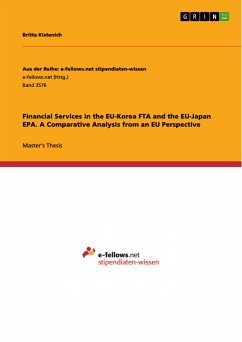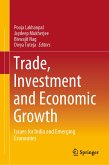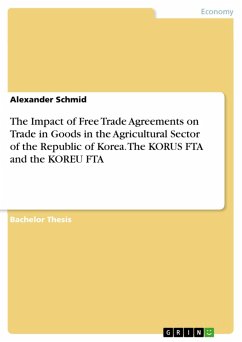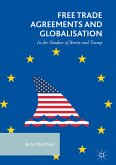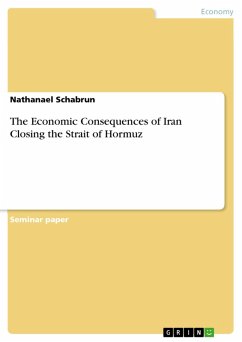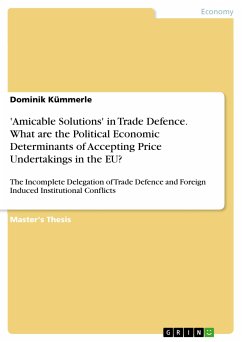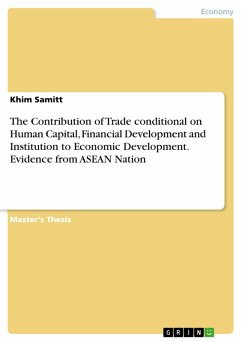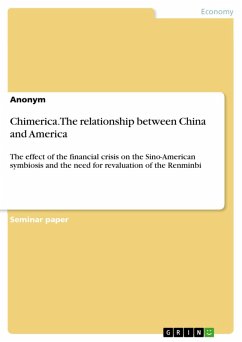Master's Thesis from the year 2019 in the subject Economics - Foreign Trade Theory, Trade Policy, grade: 1,0, Korea University, Seoul (Graduate School of International Studies), language: English, abstract: This research aims to find out whether there exist any differences between financial services provisions and commitments in the EU-Korea FTA and EU-Japan EPA. Through a qualitative analysis in form of a comparison between the agreement texts, it was found that there exists a number of differences which can be grouped in three categories: (1) architecture, scope and coverage, (2) modes of supply, and (3) regulatory framework. The most significant differences can be found in the third category. In general, JEFTA was found out to be more liberal in many respects, because it has a broader coverage, clarifications which do not exist in KOREU and contains provisions on regulatory cooperation, among others. This research identifies the different EU interest in Korea's and Japan's financial services sector as the most probable reason for the differences in the agreements. It is concluded that Japan's financial services sector was more attractive for the EU at the time when negotiations were initiated. This is due to the fact that first, Japan's banking sector is more developed and second, Japan is more involved in international trade and investment in financial services. Based on the findings, the EU and Korea should work to amend the agreement to improve the efficiency in financial services trade. Furthermore, the EU has to make sure to establish a balance of liberalization and financial stability.
Dieser Download kann aus rechtlichen Gründen nur mit Rechnungsadresse in A, B, BG, CY, CZ, D, DK, EW, E, FIN, F, GR, HR, H, IRL, I, LT, L, LR, M, NL, PL, P, R, S, SLO, SK ausgeliefert werden.

